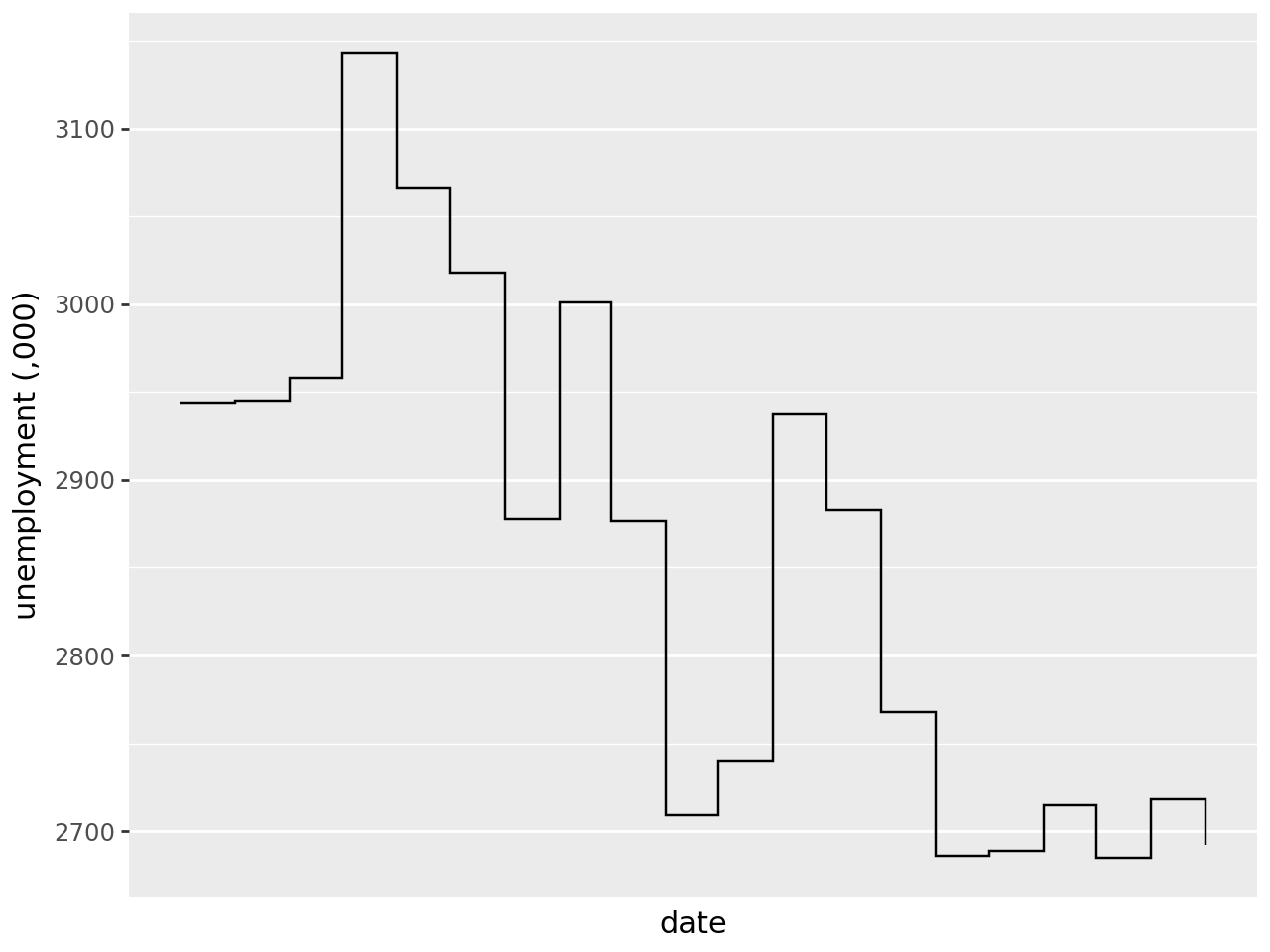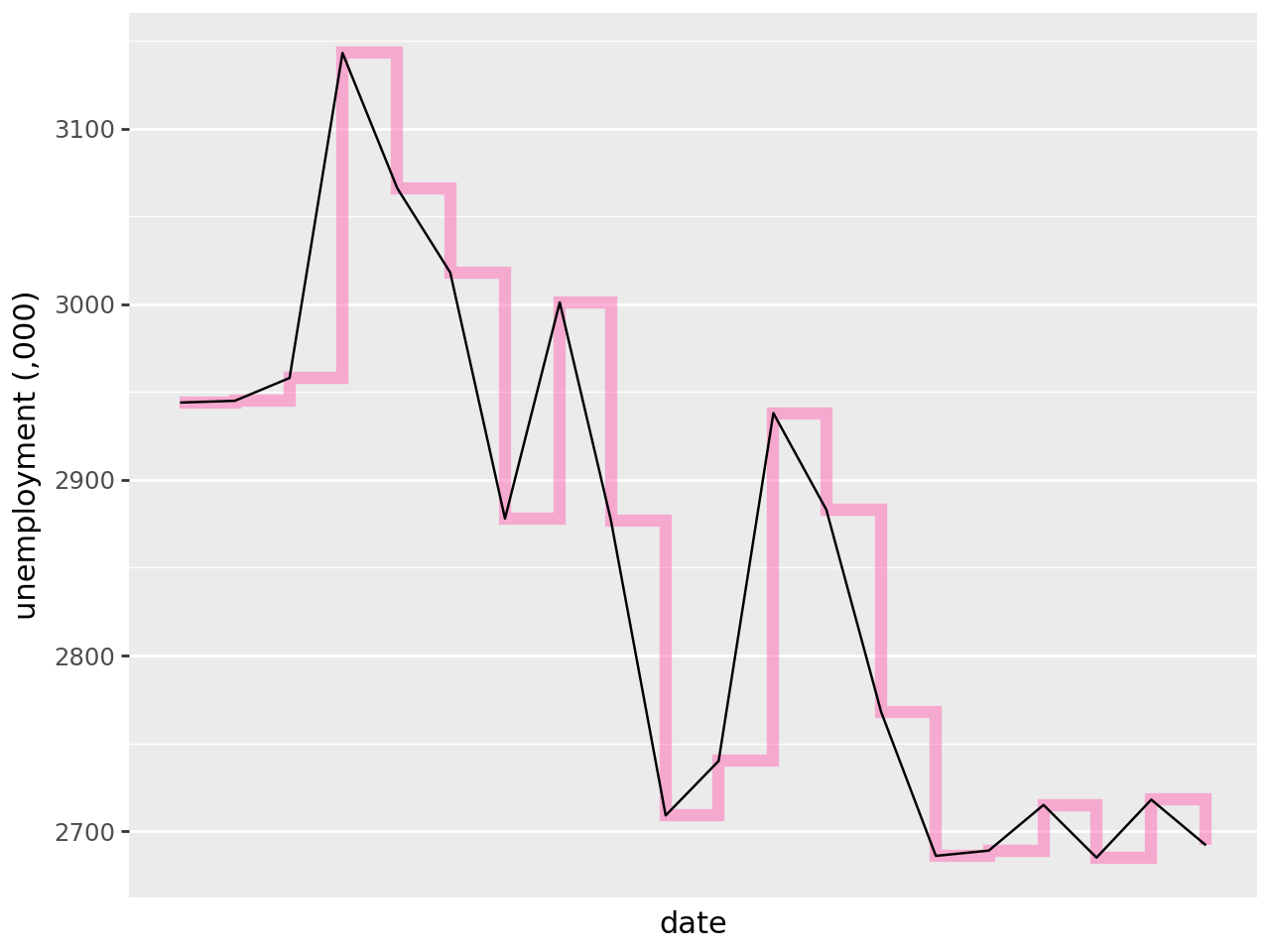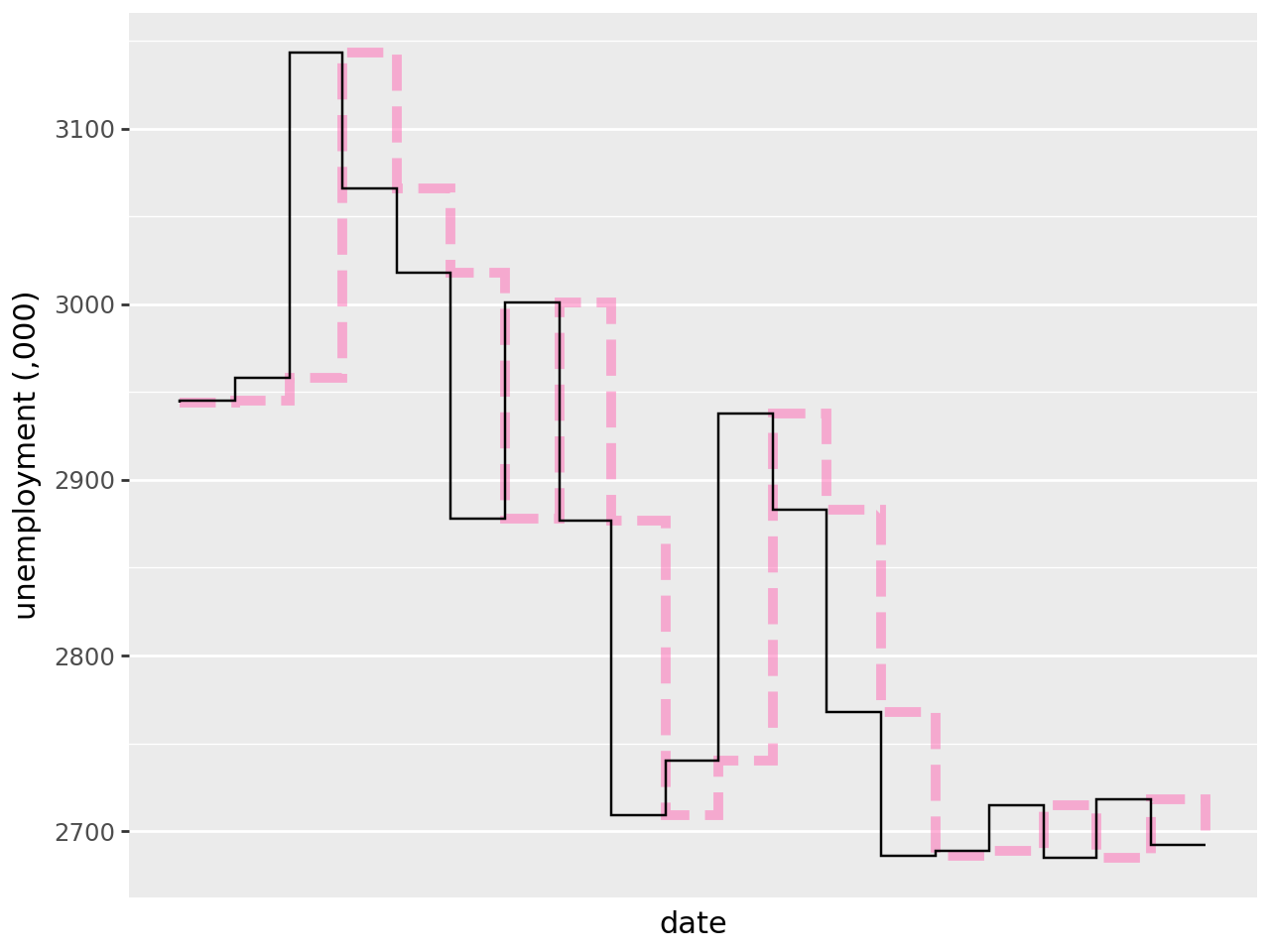from plotnine import ggplot, aes, geom_step, geom_line, labs, theme, element_text
from plotnine.data import economicsStep plots
geom_step() connects points using ‘steps’ instead of a line.
# inspect the data
economics.head()| date | pce | pop | psavert | uempmed | unemploy | |
|---|---|---|---|---|---|---|
| 0 | 1967-07-01 | 507.4 | 198712 | 12.5 | 4.5 | 2944 |
| 1 | 1967-08-01 | 510.5 | 198911 | 12.5 | 4.7 | 2945 |
| 2 | 1967-09-01 | 516.3 | 199113 | 11.7 | 4.6 | 2958 |
| 3 | 1967-10-01 | 512.9 | 199311 | 12.5 | 4.9 | 3143 |
| 4 | 1967-11-01 | 518.1 | 199498 | 12.5 | 4.7 | 3066 |
Plot a step plot using geom_plot(). Notice from the first point the line travels vertically then horizontally:
(
ggplot(
economics.iloc[:20], # filter for first twenty rows (dates) to make steps more visible
aes("date", "unemploy"),
)
+ geom_step() # step plot
+ labs(x="date", y="unemployment (,000)") # label x & y-axis
+ theme(axis_text_x=element_text(angle=45)) # rotate x-axis text for readability
)
You can see how geom_path() (shown in pink) differs from geom_line() (black):
(
ggplot(economics.iloc[:20], aes("date", "unemploy"))
+ geom_step(
colour="#ff69b4", # plot geom_step as the first layer - colour pink
alpha=0.5, # line transparency
size=2.5,
) # line thickness
+ geom_line() # plot geom_line as the second layer
+ labs(x="date", y="unemployment (,000)")
+ theme(axis_text_x=element_text(angle=45))
)
Rather than a line that travels vertically then horizontally, this order can be switched by specifying direction='vh' within geom_step(). Below direction='vh' is shown in black with the default direction='hv' shown in pink:
(
ggplot(economics.iloc[:20], aes("date", "unemploy"))
+ geom_step(
colour="#ff69b4", # plot geom_path with default direction as the first layer - colour pink
linetype="dashed", # line type
size=2, # line thickness
alpha=0.5,
) # line transparency
+ geom_step(direction="vh") # plot geom_path with step order reversed
+ labs(x="date", y="unemployment (,000)")
+ theme(axis_text_x=element_text(angle=45))
)